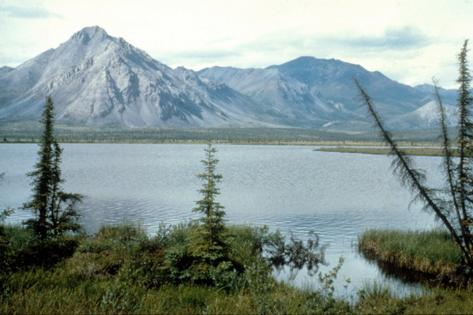Biden administration sets Jan. 9 lease sale for potential drilling in Arctic National Wildlife Refuge
Published in Science & Technology News
ANCHORAGE, Alaska — The Biden administration said Monday it will hold the second lease sale for potential oil and gas exploration in the Arctic National Wildlife Refuge on Jan 9.
The sale is required by the 2017 Tax Cut and Jobs Act, passed by Republicans during President Donald Trump's first term.
The Bureau of Land Management said it issued a formal decision approving the lease sale in the 1.6-million acre coastal plain of the refuge. The agency also issued a notice of sale for 400,000 acres in the area.
Supporters and opponents of drilling in the refuge last month criticized the proposed plans for the lease sale.
It's uncertain how much interest the lease sale will generate from oil companies. The Interior department in 2021 suspended the first lease sale held in president-elect Donald Trump's first term as president after determining that it was legally flawed. That lease sale generated scant bidding and no offers from major oil companies.
Alaska political leaders, business groups and many North Slope leaders have long hoped to see oil exploration in the refuge. They said the amount of land offered for leasing, the minimum allowed by law, was too small, which could hamper bidding.
Conservation groups and some Alaska tribes have also slammed the decision as potentially adding to global warming, if it leads to oil production, and putting species like caribou at risk.
The Biden administration said in a statement that the goal is limiting the footprint where seismic exploration can take place and avoiding sensitive wildlife.
"The area offered for sale will avoid important polar bear denning and Porcupine caribou herd calving areas," the Bureau of Land Management. "This also has the smallest footprint of potential surface disturbance due to No Surface Occupancy stipulations, and limits seismic exploration to the areas available for leasing."
The final decision from the Biden administration drew immediate backlash from groups that oppose drilling in the refuge.
They said bidding in the first lease generated a tiny fraction of the government revenue it was expected to generate, as oil companies stayed away from a proposal that faced strong opposition from conservation groups and others.
Those groups have expressed concerns that Trump will aggressively attempt to allow oil and gas drilling opportunities in the refuge, perhaps with additional lease sales. The Trump administration might attempt seismic exploration that could reveal more clues about the area's oil potential, Politico reported.
Conservation groups said they stood ready to challenge any leasing activity they view as illegal.
"Congress should restore protections for the coastal plain rather than continue allowing these lands to be used as a political pawn," said Brook Brisson, senior staff attorney with Trustees for Alaska. "We will stand with our clients, partners, and the majority of Americans in opposing the leasing of these lands and if that means challenging unlawful decisions in court, we're prepared to do that again."
RaeAnn Garnett, first chief of the Native Village of Venetie tribal government, said drilling would be a "direct threat" to the Neets'ąįį Gwich'in way of life and the Porcupine caribou herd.
"Our people have relied on this herd for our subsistence practices since time immemorial and expect to be able to rely on it for generations to come," she said. "Any oil and gas development poses an undeniable threat to the caribou migration routes, which will impact our traditional subsistence-based way of life."
The Voice of the Arctic Iñupiat, representing elected Iñupiat leaders from Alaska's North Slope where the refuge is located, supports oil and gas activity in the refuge.
The group said in a statement it opposes the "minimized" lease sale.
"This final (record of decision) and notice of a lease sale is a deliberate attempt by the Biden administration's Interior Department to kneecap the potential of development in ANWR," said Nagruk Harcharek, president of the Voice of the Arctic Iñupiat. "This minimalist ROD goes against the wishes of the North Slope Iñupiat, particularly those in Kaktovik — the only community located within ANWR. It is a disingenuous move designed to meet the minimum legal requirements outlined by Congress while undermining any economic potential in our region — a bad faith effort that jeopardizes the economic and cultural future of our communities for political gain."
©2024 Anchorage Daily News. Visit at adn.com. Distributed by Tribune Content Agency, LLC.







Comments